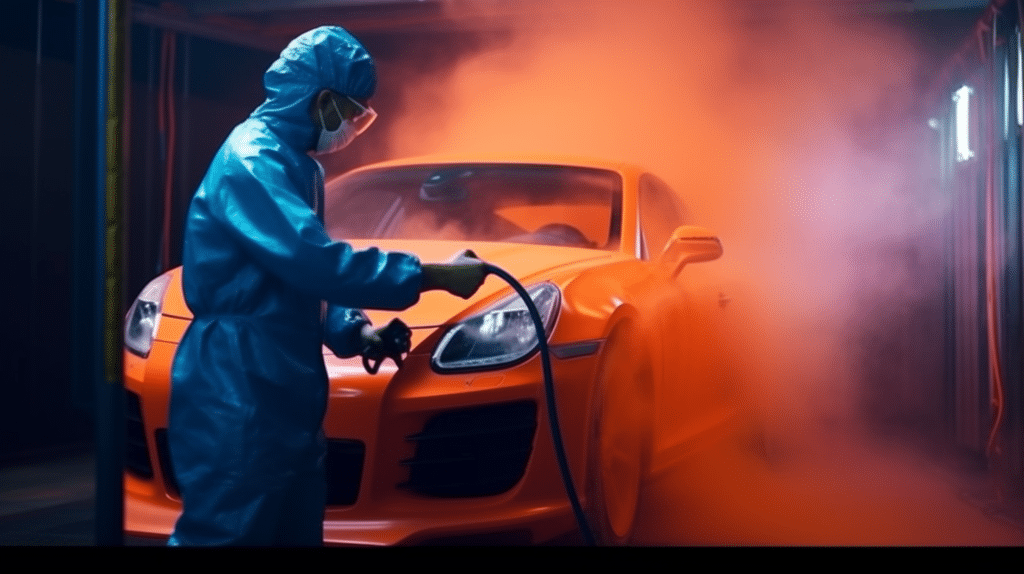As a car owner, it can be frustrating to find that your vehicle is not moving forward when you put it in drive. It could be a lack of acceleration or complete non-responsiveness of the vehicle. In this section, I will delve into the various reasons why your car may not move forward when you put it in drive.
From transmission problems to engine issues, fuel system malfunctions, electrical glitches, and brake system failures, there are several potential causes to investigate. Knowing these potential causes can help you identify and address the problem promptly. If you’re unable to diagnose or fix the issue yourself, consulting a qualified mechanic to ensure the proper functioning of your vehicle is crucial.
Key Takeaways
- There can be several reasons why your car may not move forward in drive.
- Potential causes to investigate include transmission problems, engine issues, fuel system malfunctions, electrical glitches, and brake system failures.
- If you’re unable to diagnose or fix the issue yourself, consulting a qualified mechanic is essential.
Transmission Problems
When your car won’t move forward in drive, one of the most common culprits is a problem with the transmission. A faulty transmission can cause a variety of issues, including difficulty shifting or complete non-responsiveness of the car.
If you’re experiencing a car transmission problem, there are several potential causes to consider. One common issue is a faulty shift solenoid, which can prevent your car from shifting into the appropriate gear. Another possibility is a worn-out clutch, which can cause the car to get stuck in first gear and not shift at all.
To diagnose the issue, it’s important to take your car to a qualified mechanic who can inspect the transmission and identify any potential problems. Depending on the severity of the issue, your mechanic may need to repair or replace the transmission to ensure that your car can move forward in drive.
Common Symptoms of Transmission Problems
Here are some of the most common symptoms of a car transmission problem:
- The car won’t shift into gear
- The car is stuck in first gear and won’t shift
- The car is slipping out of gear
- You hear strange noises or vibrations when shifting gears
- The car is slow to accelerate or won’t accelerate at all
If you’re experiencing any of these symptoms, it’s important to take your car to a mechanic as soon as possible to avoid causing further damage to the transmission.
Expert Tip: A good way to prevent transmission problems is to get regular fluid flushes and changes to keep the transmission running smoothly.
Fixing Transmission Problems
Depending on the severity of the transmission problem, there are several potential fixes that your mechanic may recommend. If the issue is minor, your mechanic may be able to adjust or repair the shift solenoid or clutch to get your car moving forward in drive again. However, if the problem is more serious, your mechanic may need to replace the entire transmission to ensure that your car is safe and functional on the road.
While transmission repairs can be costly, it’s important to address the issue as soon as possible to avoid causing further damage to your car. Ignoring transmission problems can lead to more serious issues down the line, including complete transmission failure and the need for a full replacement.
Engine Issues
When your car is not gaining speed in drive, not responding in drive, or not driving properly, it’s essential to consider potential issues with the engine. The engine is the heart of the car, and any problems with it can significantly impact the car’s performance. Here are some common engine problems that could cause a car not to move forward in drive:
- Lack of power: If your car is struggling to gain speed or cannot reach higher speeds, it could be due to a variety of factors. A dirty air filter, clogged fuel injectors, or a malfunctioning fuel pump can all contribute to a lack of power from the engine.
- Misfiring engine: When the engine misfires, it means that one or more cylinders in the engine are not functioning correctly. This can cause the car to vibrate or shake, especially when accelerating. A misfiring engine can be caused by a variety of problems, including faulty spark plugs, a clogged air filter, or a malfunctioning fuel injector.
- Faulty sensors: Modern cars rely on a variety of sensors to monitor the engine’s performance and adjust accordingly. If one or more of these sensors is malfunctioning, it can cause the engine to run poorly, resulting in issues like a lack of acceleration or responsiveness.
It’s essential to address any engine problems as soon as possible to prevent further damage to the vehicle. Regular maintenance, including changing the oil and air filter, can help prevent engine problems from occurring.
Fuel System Problems
If you find that your car is not gaining speed in drive, is not responding in drive, or is not driving properly, the fuel system may be the culprit. The fuel system includes everything from the fuel tank to the fuel injectors, and when something goes wrong, it can have a big impact on your car’s performance.
One possible issue is a clogged fuel filter. Over time, debris and contaminants can build up in the fuel filter, which can restrict the flow of fuel to the engine. This can cause your car to struggle when accelerating, or it may not move forward in drive at all. A clogged fuel filter is a relatively easy fix, and your mechanic can replace it relatively quickly.
Another potential problem is a malfunctioning fuel pump. The fuel pump is responsible for ensuring that fuel gets from the tank to the engine, but if it’s not working correctly, your car may not be able to accelerate or move forward in drive. You may also notice that your car sputters or stalls when you try to accelerate. Replacing a faulty fuel pump is a more complex repair, and it’s important to have a qualified mechanic handle the job.
How to Identify Fuel System Problems
There are a few signs that can indicate a problem with your car’s fuel system. If you notice that your car is not gaining speed when you press the accelerator, or if you have trouble accelerating smoothly, these may be signs of a fuel system issue. You may also notice that your car is not responding in drive, or it may have a hard time starting or staying running. If you smell gasoline or notice a decrease in fuel efficiency, these can be indications that something is wrong with your fuel system.
How to Fix Fuel System Problems
Depending on the issue, fixing a fuel system problem can range from a quick and easy fix to a more complex repair. In some cases, your mechanic may simply need to replace a fuel filter or clean out the fuel injectors to improve your car’s performance. However, if the issue is a faulty fuel pump or a more serious problem with the fuel system, the repair may be more involved. It’s important to have a qualified mechanic diagnose and fix any fuel system issues to ensure the safety and proper functioning of your vehicle.
Electrical Malfunctions
When it comes to the electronic components of a vehicle, even a small problem can have a big impact. Electrical malfunctions can cause a car to not respond or engage in drive, preventing its ability to move forward. These issues can be difficult to diagnose without the proper knowledge or diagnostic equipment.
Potential electrical malfunctions that can cause a car to not respond in drive include a malfunctioning transmission control module or a faulty sensor. The transmission control module (TCM) is the brain of the transmission, responsible for shifting the gears. If the TCM malfunctions, it could prevent the transmission from functioning properly, resulting in a car that won’t move forward in drive.
Another potential culprit for electrical malfunctions is a faulty sensor. Sensors monitor various systems in a car and send signals to the car’s computer to ensure that everything is working properly. If a sensor fails, it could cause the car to not respond in drive, as the computer may not receive accurate information about what is happening in the engine or transmission.
“Electrical malfunctions can cause a car to not respond or engage in drive, preventing its ability to move forward.”
Brake System Issues
When we think about issues that could cause a car not to move forward in drive, problems with the brake system might not be the first thing that comes to mind. However, brake-related issues can significantly impact the car’s ability to gain speed or move forward properly.
One potential issue with the brake system that could cause a car not to move forward is a stuck brake caliper. A brake caliper is a component that clamps down on the brake rotor to slow or stop the wheel’s rotation. If one of the calipers becomes stuck, it may cause the brake to drag on the rotor, resulting in decreased acceleration or even complete immobilization of the vehicle.
Another potential brake-related issue that could cause the car not to move forward is a malfunctioning brake booster. A brake booster is a device that uses vacuum pressure to assist in applying the brakes. If the brake booster fails, the brakes may not work correctly, causing the car to struggle to gain speed or move forward at all.
Table: Common Brake System Issues
| Brake System Issue | Symptoms |
|---|---|
| Stuck brake caliper | Car not moving forward in drive, decreased acceleration |
| Malfunctioning brake booster | Brakes not working correctly, car struggling to gain speed or move forward |
If you suspect an issue with your car’s brake system, it’s essential to have it inspected by a qualified mechanic immediately. Driving with faulty brakes can be extremely dangerous and could result in a serious accident. Keep an eye out for warning signs such as squeaking or grinding when applying the brakes, a soft or spongy brake pedal, or a vibrating steering wheel, and take prompt action to address the problem.
Conclusion
Understanding the reasons why your car won’t move forward in drive can be frustrating and daunting, but it’s important to identify and address the problem to ensure the safety and proper functioning of your vehicle.
From transmission problems like a faulty shift solenoid or worn-out clutch to engine issues such as a lack of power or misfiring engine, fuel system malfunctions, electrical glitches, and brake system failures, there are several factors that can contribute to a car’s inability to move forward in drive.
If you’re unable to diagnose or fix the issue yourself, it’s important to consult a qualified mechanic who can diagnose and repair the problem. Ignoring the issue could lead to more serious problems down the road, so it’s always better to address and resolve the issue as soon as possible.
By understanding and addressing the various potential causes for your car not moving forward in drive, you can ensure the safety and reliability of your vehicle for years to come.
FAQ
Why is my car not moving forward in drive?
There are several potential reasons why your car may not move forward in drive. It could be due to transmission problems, engine issues, fuel system problems, electrical malfunctions, or brake system issues. Identifying the specific cause will require further diagnosis.
What are some common transmission problems that can prevent my car from moving forward in drive?
Common transmission problems include a faulty shift solenoid, a worn-out clutch, or issues with the transmission fluid. These issues can prevent the gears from shifting properly, resulting in the car not moving forward in drive.
How can engine issues affect the car’s ability to move forward in drive?
Engine issues such as a lack of power, a misfiring engine, or issues with the fuel injectors can affect the car’s ability to accelerate and respond to the driver’s commands, resulting in the car not moving forward in drive.
Can problems with the fuel system cause the car to not move forward in drive?
Yes, a faulty fuel system can disrupt the proper flow of fuel to the engine, which can hinder the car’s performance and prevent it from moving forward in drive. Clogged fuel filters or malfunctioning fuel pumps are common culprits in such cases.
How can electrical malfunctions impact the car’s ability to move forward in drive?
Electrical malfunctions such as a faulty sensor or a malfunctioning transmission control module can disrupt the car’s ability to engage and respond to the driver’s commands. This can result in the car not moving forward in drive.
Can brake system issues prevent the car from moving forward in drive?
Surprisingly, yes. Problems with the brake system, such as a stuck brake caliper or a malfunctioning brake booster, can interfere with the car’s ability to gain speed or move forward properly in drive.




